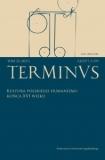Polotia recepta. Mapa Księstwa Połockiego – teksty i preteksty sporu o władzę
Polotia recepta. A Map of the Principality of Polatsk: Texts and Pretexts of the Power Dispute
Author(s): Grzegorz FranczakSubject(s): Cultural history, Maps / Cartography, Diplomatic history, Political history, 16th Century
Published by: Wydawnictwo Uniwersytetu Jagiellońskiego
Keywords: Stanisław Pachołowiecki; Descriptio Ducatus Polocensis; Renaissance cartography; Polish-Lithuanian Commonwealth; Muscovy;
Summary/Abstract: This study discusses an important aspect of a political message conveyed by Stanisław Pachołowiecki’s map, published in 1580 by G.B Cavalieri’s printing house in Rome as part of The Atlas of the Principality of Polatsk – Descriptio Ducatus Polocensis. The message in question is one of the paratexts, presenting a detailed historical note on Polatsk and the Principality. The main goal of the study is to prove a double hypothesis, first that the note on Polatsk was a key argument legitimising the rule of Stephen Báthory – contested by Tsar Ivan the Terrible – not only over the small territory under dispute but over the whole Great Duchy of Lithuania and the Polish-Lithuanian Commonwealth, and second, that the decision to aim the first Polish-Lithuanian military offensive in the 1577–1582 war at Polatsk was motivated by political rather than military or strategic considerations. In section I, preliminary assumptions, theses and research methods are presented. Then, in section II, the context of the propaganda campaign, as Pachołowiecki’s map ideological framework, is introduced. This is followed by a critical analysis of the historical note, based on Polish and Ruthenian-Lithuanian sources (III.1). The next section (III.2) demonstrates that Polatsk held a central place in the Muscovite political discourse. Having proclaimed himself a heir to the throne of the Great Duchy and to the crown of Poland, Ivan the Terrible seized the land of Polatsk, and the efficient Muscovite diplomacy started to assert the tsar’s alleged dynastic claim to Lithuania and Poland. In this way, the manipulated history of the “recovered Polatsk”, Polotia recepta, argued to be a historical part of Lithuania, can be seen as a reply to the Muscovite discourse of power drawing on dynastic claims to a non-existent duchy, and the key matter is the legitimisation of elective monarchy as opposed to hereditary one. Having discussed the theatrical and iconic form of the Polish triumph over Ivan the Terrible (III.3), the author highlights the long life of the political myth of the Polatsk statehood and its significance for today’s Belarusian identity discourse.
Journal: TERMINUS
- Issue Year: 23/2021
- Issue No: 2 (59)
- Page Range: 97-133
- Page Count: 37
- Language: Polish

